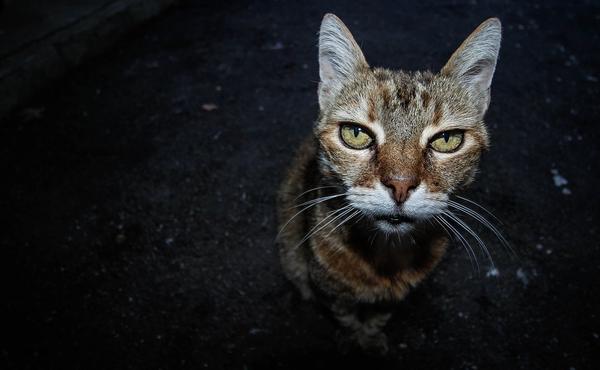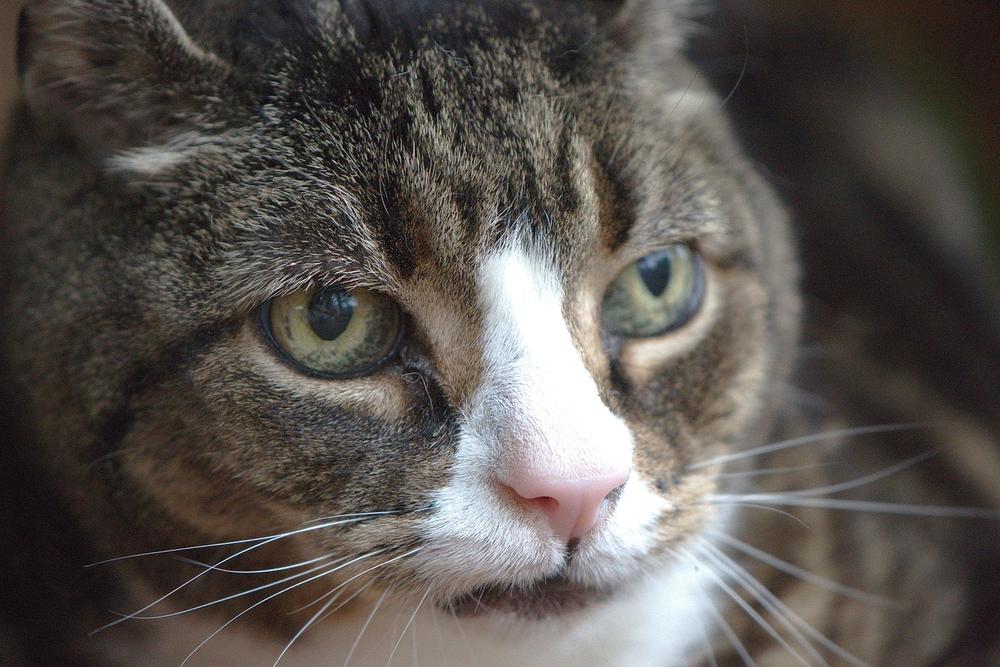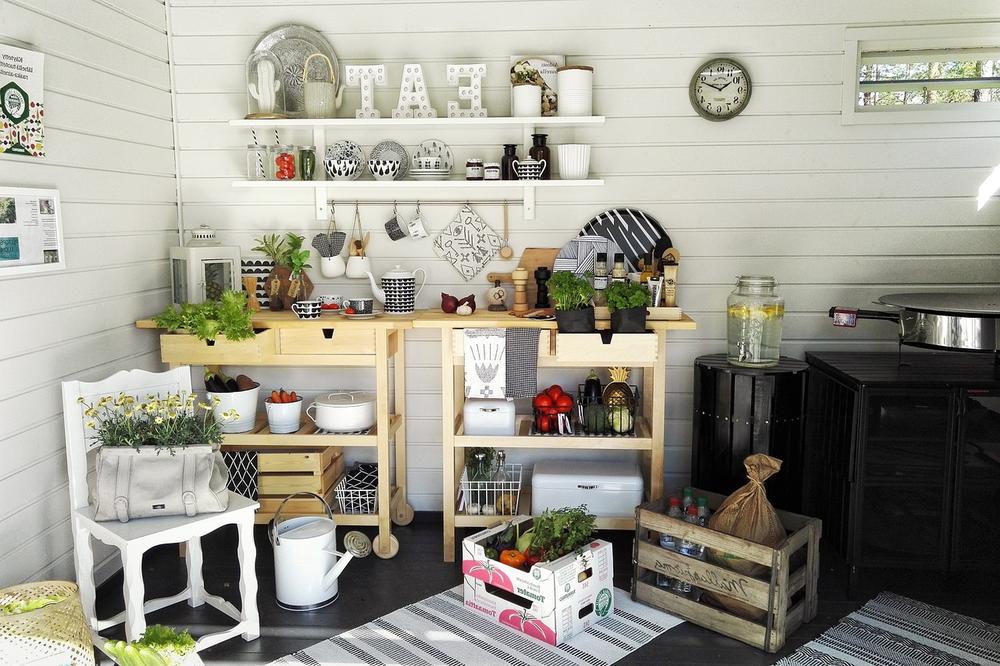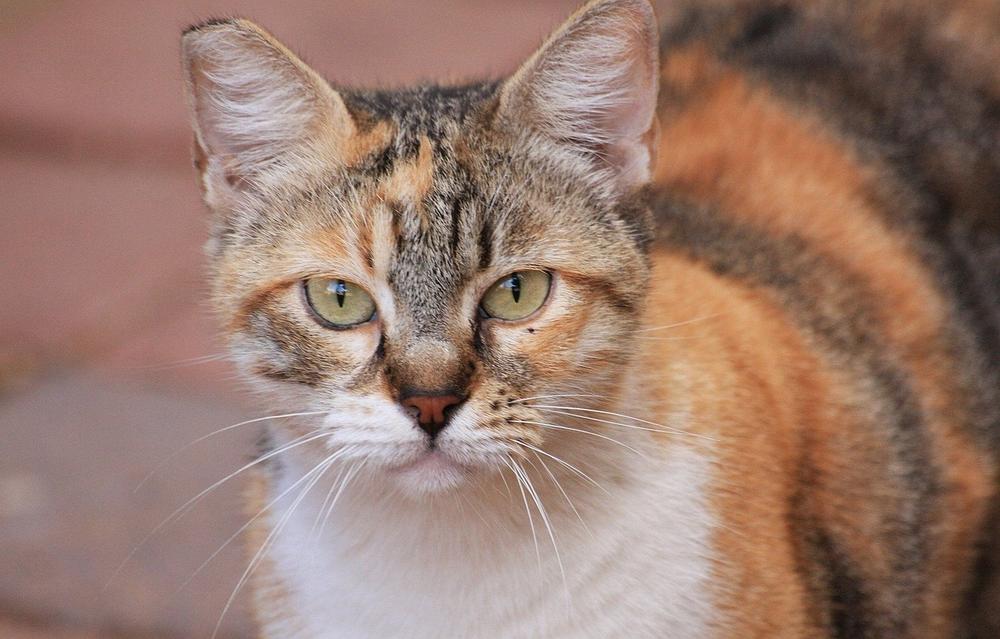Why Is My Old Cat Peeing Everywhere? (Answered)

Let me know if you agree:
Dealing with an old cat peeing everywhere is enough to make you want to tear your hair out.
You're constantly on edge, fearing the worst and praying for a solution.
But hey, there's hope. 😺
Shall we dive in?
Preventing and Addressing Older Cat's Inappropriate Urination
If your older cat is peeing outside of the litter box, don't panic.

There are steps you can take to prevent and address this issue:
- Provide multiple clean litter boxes in various locations throughout your home. This gives your cat options and prevents them from feeling trapped or overwhelmed.
- Make sure the litter boxes are clean and well-maintained. Regularly scoop out waste, change the litter, and ensure the boxes are easily accessible for your cat.
- Identify the underlying cause of the inappropriate urination. Schedule a visit to the vet to rule out any medical conditions that may be causing this behavior. It could also be a sign of stress or behavioral issues.
- Address any litter or box problems: Some older cats may prefer certain types of litter or box styles. Experiment with different options to find what works best for your cat.
- Consider the location of the litter box: If it's tucked away in a remote area or hard to access, your cat may be reluctant to use it. Try moving it to a more convenient spot.
- Accommodate physical limitations: Older cats may have trouble accessing high-sided litter boxes or climbing stairs. Provide low entry boxes or ramps if needed.
Accidents happen, but with patience and understanding, you can help your senior cat overcome inappropriate urination.
Main points I'll expand upon further down this article:
- Urinary issues in older cats can stem from medical or behavioral problems.
- Common medical causes include urinary tract infections, urinary crystals, and bladder stones.
- Environmental factors, such as litter box setup, can affect a cat's urination behavior.
- Maintaining a clean and appealing litter box setup is crucial.
- Preferences for litter type may vary among cats, and multiple litter boxes may be necessary.
- Cats may urinate outside the litter box due to stress or dissatisfaction with their environment.
- Creating a low-stress environment and visiting the vet regularly are important.
- If no underlying medical issues are found, the problem may be behavioral or psychological.
- Identifying and addressing triggers can help reduce stress and prevent bathroom behavior problems.
- Contact a veterinarian promptly if your cat is urinating outside the box or showing signs of pain while urinating.
Now, here's the deal...
While addressing inappropriate urination in older cats is crucial, it's equally critical to ensure their all in all urinary health.
If you're curious about how to maintain proper hydration and prevent potential urinary tract issues, keep reading for some valuable insights and practical tips...
Common Medical Issues Causing Elderly Cats to Pee Everywhere
Is your cat peeing all over the place? 😿
Here are some common health problems that might be causing it:
- Urinary tract infections (UTIs): When there's bacteria in their urinary system, it can make them uncomfortable and feel like they need to pee more often.
- Urinary crystals: These crystals can form in your cat's pee and block their urinary tract, which causes pressure to build up and more frequent urination.
- Bladder stones: Like crystals, bladder stones can also block the flow of urine, causing pain and making them pee where they shouldn't.
- Hyperthyroidism: If their thyroid gland is too active, it can make them really thirsty and pee a lot.
- Degenerative joint disease: As cats get older, this condition can make it hard for them to get to the litter box, so accidents happen.
- Kidney disease: When their kidneys aren't working as well, they might pee more and have accidents outside the litter box.
- Feline idiopathic cystitis: Stress or an inflamed bladder can make cats pee outside of their litter box.
To prevent things from getting worse, you should deal with these health issues right away.
Talk to your vet about treatment options, which could include medication, changing their diet, giving them supplements, or making changes in their environment.
Making sure they stay hydrated is important, so think about using water fountains or adding wet food to their meals.
To help address your cat's inappropriate peeing habits, I highly recommend checking out my comprehensive guide on potential reasons for cats peeing in their water and food bowl.
In this article, you'll find valuable information and insights that could shed light on why your cat is exhibiting this behavior.
Take the first step in understanding your cat's needs by clicking here: Cat Peeing in Water and Food Bowl.
Environmental Factors: Creating a Cat-Friendly Litter Box Setup
To make sure your cat feels comfortable with their litter box, you need to take into account a few things.
- Try out different types of litter. See what your senior cat likes best - clumping, non-clumping, scented or unscented.
- Keep the litter box clean. Scoop it regularly so your cat doesn't have accidents and is encouraged to use it.
- Choose low-sided boxes. Older cats might struggle getting into high-sided ones, so go for options with lower sides for easier access.
- If your cat still avoids the litter box despite all your efforts, seek veterinary care. A professional can address any potential health issues causing this behavior.
- Make changes to the environment gradually. This way, you'll minimize stress for your cat. You can consider rearranging furniture or introducing new items slowly.
- Reduce anxiety in your cat by using products like pheromone sprays or diffusers that create a calm atmosphere. 😺
- If you have multiple cats, accommodate them by providing an extra litter box. This helps avoid territorial disputes.
The key to keeping your cat happy and preventing accidents lies in maintaining a clean and appealing litter box setup.

Now, you may be wondering how to create this designated safe space for your older cat and eliminate those pesky bathroom behavior problems.
Well, get ready because I'm about to reveal some practical tips that can transform your cat's environment and help bring peace back into your home:
Behavioral Techniques: Ruling Out Stress and Anxiety as Potential Causes
To rule out stress and anxiety as potential causes for your cat's behavior, try these 10 techniques:
- Create a designated "safe space" for your cat.
- Avoid sudden changes in the household dynamics.
- Introduce new animals gradually to minimize stress.
- Regularly visit the vet to rule out medical issues.
- Keep the litter box clean and accessible at all times.
- Maintain consistent routines, especially when you're away.
- Provide plenty of mental and physical stimulation.
- Use pheromone sprays or diffusers to promote relaxation.
- Try calming supplements or medications, if recommended by your vet.
- Identify and address triggers that disrupt your cat's routine.
Cats are creatures of habit, and disruptions to their routine can cause stress.
By creating a low-stress environment, maintaining routines, and addressing any underlying medical issues, you can help reduce anxiety-related behaviors and prevent bathroom behavior problems.
And now, let's shift our focus to monitoring your older cat's litter box habits closely for any changes that could indicate underlying medical conditions.
It's essential for us to be proactive in identifying and addressing these potential health concerns to ensure the well-being of our beloved feline friends...
Decoding Feline Behavior: When to Seek Vet for Inappropriate Elimination
Watch your older cat's litter box habits closely.
If you see sudden changes in how often they go, their posture while urinating, or any signs of pain, it's time to seek help from a vet. These symptoms could be indicators of an underlying issue that needs investigation.

You want to get a proper diagnosis and rule out medical conditions like urinary tract infections, bladder infections, kidney problems, or diabetes.
So pay attention to your furry friend's behavior and take action if anything seems off.
Your vigilance can make all the difference in ensuring their health and well-being.
And that wraps up today's article.
If you wish to read more of my useful articles, I recommend you check out some of these: Cat Not Using Litter Box After Giving Birth, How to Discipline a Cat for Peeing Outside the Litter Box, Cat Sleeping Next to a Litter Box, and Cat Meowing Purring After Giving Birth
Talk soon,
-Sarah Davis